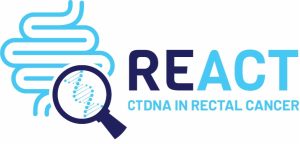Each year, approximately 3,500 individuals in the Netherlands are impacted by rectal cancer. Although some treatments show effectiveness, combating the disease remains challenging, given that it reoccurs in about 30% of cases despite initial success within the standard treatment.
Some studies have shown that adjuvant chemotherapy, which is when a patient gets chemotherapy after the primary treatment, can be beneficial in preventing recurrence. That is due to the fact that, in some cases, the disease may not appear on scans, which can result in the incorrect diagnosis of a patient as disease-free. In such situations, a small amount of the disease persists in the body, comprising particles too small to be identified by current scans but substantial enough to spread and trigger a recurrence. In such cases, adjuvant chemotherapy can help prevent the recurrence of the disease by effectively treating small amounts of the disease remaining in the body.
Despite that fact, adjuvant chemotherapy is not recommended by Dutch Standards. But recently, this has been contradicted by a new study that showed that this type of chemotherapy could combat the recurrence of the diseases. It has been discovered that specific DNA fragments in the blood can predict the recurrence of rectal cancer. These DNA fragments, also known as circulating tumor DNA (ctDNA), originate from the tumor.
This is why Prof Dr C Verhoef, MD, Ph.D. FEBS from Erasmus MC in Rotterdam initiated the REACT study. A study in which physicians at Erasmus MC aim to investigate whether additional chemotherapy improves the survival of rectal cancer patients who have detectable ctDNA in their blood following the standard treatment. This research seeks to prevent disease recurrence in these patients.
The research question is to determine whether adjuvant chemotherapy can increase the 2-year recurrence-free survival rate by at least 25% for rectal cancer patients with minimal residual disease.
Should the research yield positive results, it has the potential to significantly impact the lives of individuals worldwide who are affected by this form of cancer. Burando Atlantic Group has committed to funding this pivotal research and remains steadfast in supporting this vital cause.


